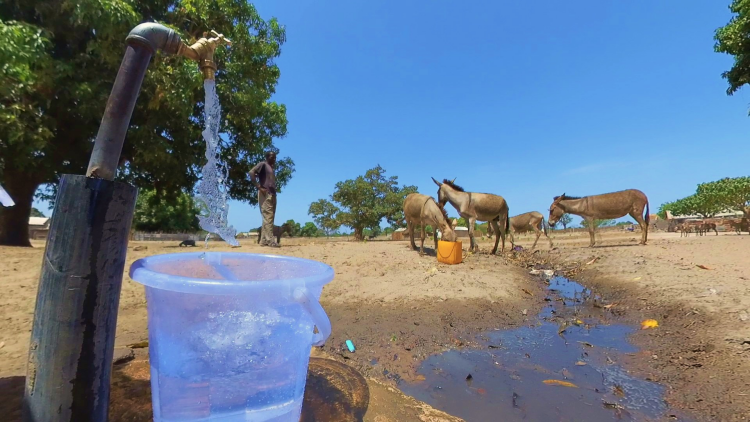Gambiaj.com – (BANJUL, The Gambia) – A recent study conducted in rural areas of The Gambia, published in BMC Public Health, explores the severe effects of water insecurity on households in Kiang West and Basse and highlights various coping strategies that rural residents employ to mitigate the impact of frequent water shortages.
The study, led by Dr. Indira Bose from the London School of Hygiene and Tropical Medicine, underscores the complex relationship between climate-related factors, water availability, and health outcomes in these communities.
Water insecurity in rural Gambia is intensified by climate conditions such as unpredictable rainfall patterns, prolonged dry seasons, and non-climatic challenges like infrastructure issues. According to the study, communities often face critical water shortages, especially during the dry season, forcing households to adopt a range of strategies that include reducing bathing, skipping hygiene practices, and modifying food preparation techniques to conserve water.
The study also reveals that, while these strategies are essential to cope with water scarcity, they often introduce health risks. For example, limiting handwashing can increase the spread of water-washed diseases, and storing water for extended periods can reduce water quality, which heightens the risk of gastrointestinal infections.
Many participants in the study reported using stagnant, contaminated water sources or borrowing water from neighbors when their primary sources dried up, practices that further threaten community health.
Gender and social dynamics were found to play a role in water-use priorities. Women, who are primarily responsible for household water collection and management, reported sacrificing personal hygiene to conserve water for children’s needs.
Despite these efforts, the communal nature of many activities, such as shared meals, prevents effective shielding of vulnerable groups like children from the health risks posed by water insecurity.
In response to these findings, researchers call for the urgent need for climate-resilient water infrastructure and local programs that educate communities on safe water storage and treatment methods. Such interventions, they suggest, could reduce the need for high-risk coping strategies and improve overall health outcomes.
This study shines a spotlight on the resilience of rural Gambian communities and their struggle to secure a safe water supply in an increasingly volatile climate, emphasizing the importance of sustainable solutions to address the growing challenges posed by water insecurity.










